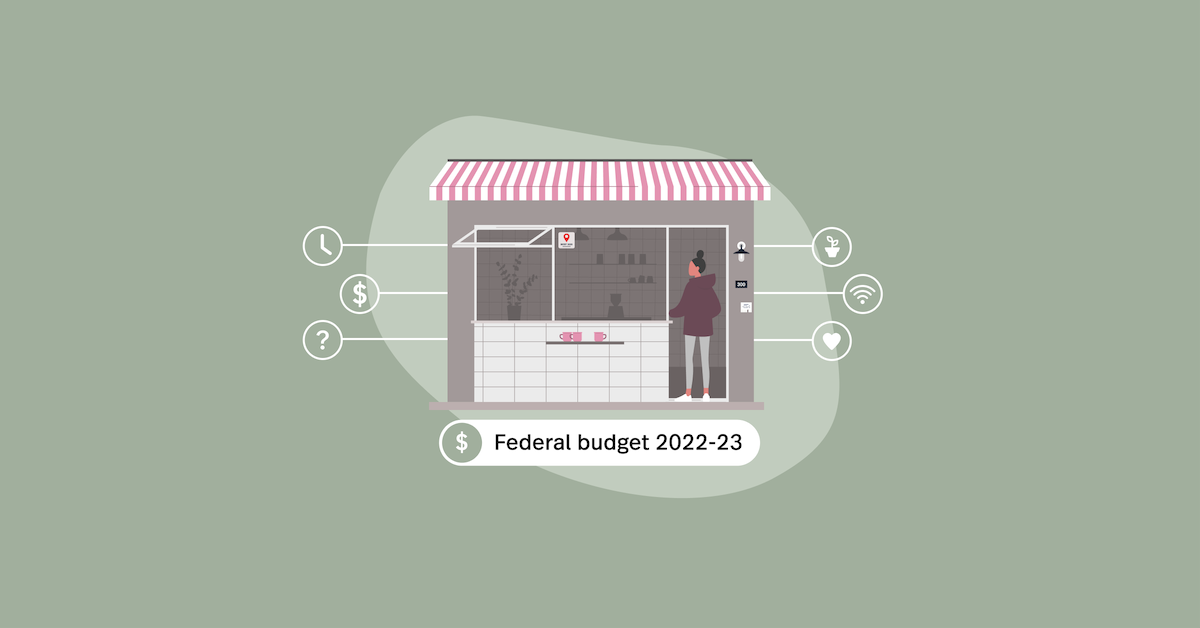
Earlier this week, the federal government announced its 2022-23 budget. This is the second budget of the year. Back in March, the Liberal government put forward their budget in the lead-up to the general election. However, as the Labour government won the election, this “mini-budget”, as it’s being labelled, will lay the foundations for how the government will fund its election promises and deal with inflation and the cost of living crisis.
Hospitality businesses were hoping for financial relief and incentives to help ease some of the financial burdens from the past 12 months of staff shortages, inflation and supply chain issues.
Unfortunately, small businesses, in general, seem to have been left out in the cold – with Treasurer Jim Chalmer mentioning small businesses just once in his budget address.
While only a handful of policies in the budget were directed at small businesses, there are other incentives that will impact business owners and their staff. To cut through the noise, we’ve nailed down the most important details for businesses and how they’re set to impact hospitality venues in the coming financial year.
What were hospitality businesses hoping for?
In March this year, former Treasurer Josh Frydenberg revealed a raft of measures and billions of dollars to support small businesses through tax write-offs, apprenticeship wage subsidies, andPay-As-You-Go (PAYG) tax tweaks.
However, two months after Frydenberg’s budget, his party lost the general election, and many of these policies never came to fruition.
In terms of the new budget, hospitality owners were hoping for help in several areas, but particularly in those of most pressing concern: staff shortages and the financial burden of skyrocketing operating costs.
While the budget doesn’t offer any quick wins or relief for hospitality businesses in the form of wage subsidies or tax cuts, there are a number of policies that should have a positive knock-on effect for small businesses.
How does the budget impact hospitality businesses?
We’ve drilled down into the budget to understand which new policies, grants and initiatives will have an impact, either directly or indirectly, on hospitality venues.
1. New funding to accelerate visa processing times
To help ease the staff shortage crisis felt by many industries across Australia, the migration cap will be lifted to 195,000 places for 2022-23. This is an increase of 35,000 places (the Morrison government promised 160,000 places in its pre-election budget).
To speed up visa processing times, the Federal Government also committed to spending $36.1 million in the next two years to add 500 additional staff to the Department of Home Affairs.
Additionally, a further $6.2m was promised to fund an international marketing campaign to promote migration to Australia.
2. Instant asset write-off to end
The instant asset write-off scheme will end on 30 June 2023. This is a blow for hospitality businesses and may impact and/or prevent businesses from investing in new equipment, assets and technology in the 2023-24 financial year.
3. NBN expansion
The government has committed $2.4 billion to enable 1.5 million more homes and businesses to upgrade to full fibre NBN, which will increase the connectivity and digital capability of thousands of businesses.
This is huge news for hospitality venues that are struggling to bring their business online due to connectivity issues. According to MYOB, 28% of small businesses say that challenges in accessing NBN, or a stable internet connection, prevent them from using digital tools.
4. Mental health support and debt counselling
The new budget has promised nearly $15 million in funding for mental health support and debt counselling for small business owners.
$10.9 million will go towards the NewAccess for Small Business Owner program, operated by BeyondBlue. The telehealth program connects small business owners with trained mental health professionals who have experience in the SME space.
Small business owners will be able to access up to six sessions as part of the NewAccess program, with no GP referral or mental health plan required to take part.
A further $4 million will go towards the Small Business Debt Helpline, a free-to-use service offered by Financial Counselling Australia, which provides small business owners with independent advice on how to manage debt.
5. Childcare subsidies
The budget has promised $4.7 billion to childcare and early childhood education subsidies, allowing families earning less than $530,000 a year to claim up to 90% of childcare costs in subsidies.
While this doesn’t directly impact hospitality venues, there will be a positive indirect impact for businesses.
The current cost of childcare often disincentivises parents, particularly mothers, from re-entering the workforce. The new childcare subsidies will ease the financial burden of childcare felt by families, making it easier for new parents to get back to work – benefiting businesses that are struggling with staff shortages.
The new measure aims to increase the hours worked by women with young children by up to 1.4 million hours a week in 2023-24 – the equivalent of an extra 37,000 full-time workers re-entering the workforce each year.
6. Green energy initiative
For businesses that are looking to upgrade their energy efficiency, the budget has committed $62.6 million in funding to projects designed to boost energy efficiency, lower emissions, or smooth out power demand.
The information in this article was accurate at the time of publishing, Oct 28, 2022. For more information, please visit the Federal Budget website.

News you care about. Tips you can use.
Everything your business needs to grow, delivered straight to your inbox.


